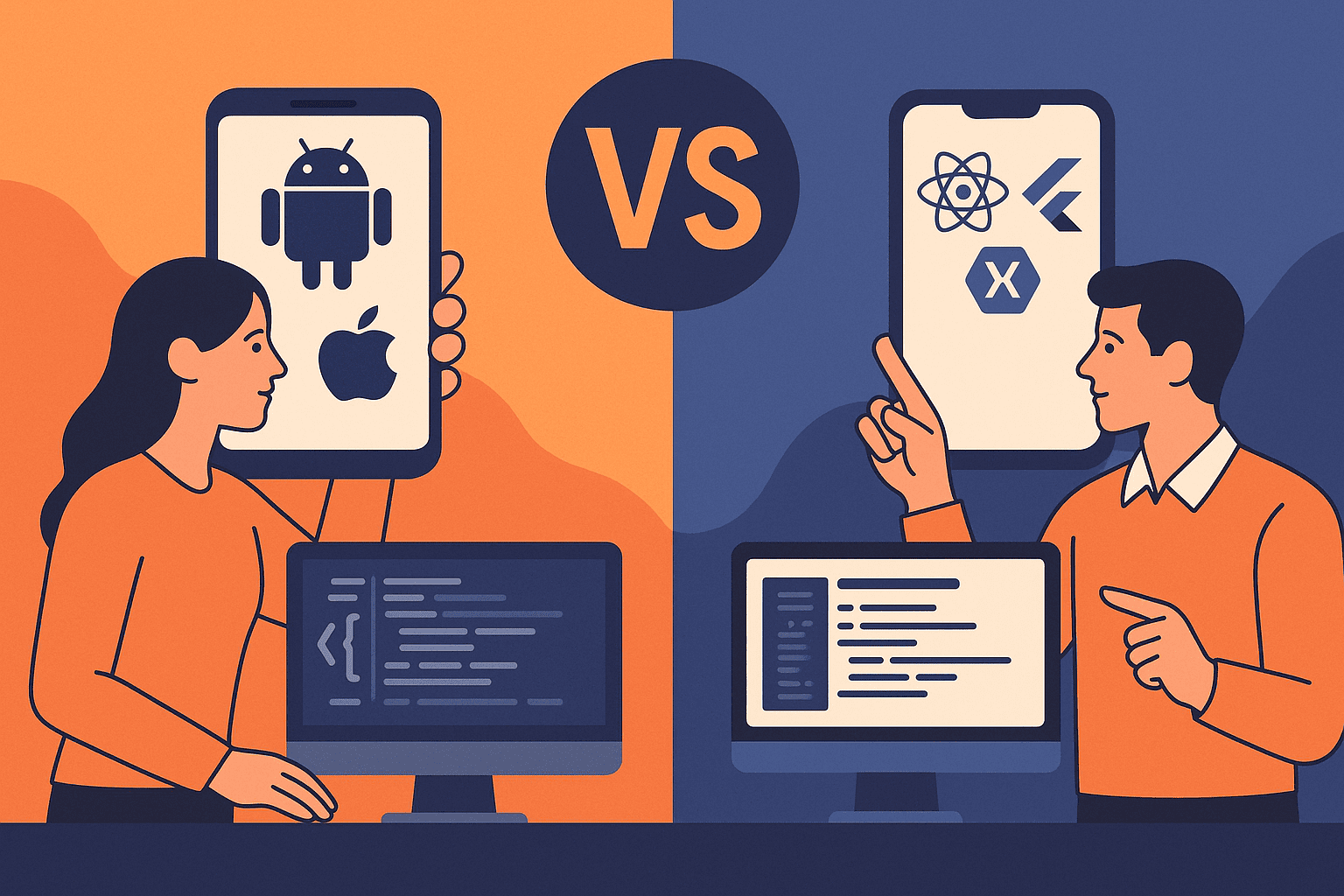
How to Choose Between Native and Cross-Platform Mobile App Development in 2025
May 20, 2025The choice between native and cross-platform mobile app development depends on several factors, such as performance, budget, timelines, and functional requirements. Let's consider the main advantages of each approach.
Native Development
Native apps are developed for specific operating systems using their native programming languages (Java/Kotlin for Android, Swift/Objective-C for iOS). These apps offer high performance, full access to device features, and can be optimized for the user’s needs.
Advantages:
1. Performance: High-speed operation, especially for resource-intensive apps.
2. Access to Device Features: Full use of OS and device capabilities.
3. UX Quality: Better user experience tailored to each platform.
Cross-Platform Development
Cross-platform frameworks like React Native, Flutter, and Xamarin allow you to create apps for both iOS and Android with a single codebase. This saves time and money, especially for projects with limited budgets and deadlines.
Advantages:
1. Development Speed: One code for both platforms accelerates the process.
2. Cost Savings: Cheaper than developing two native apps.
3. Easier Maintenance: One codebase simplifies updates and bug fixes.
When to Choose Native Development?
1. For performance-heavy apps (games, video editors).
2. When full device functionality is needed.
3. When a unique interface for each platform is required.
When to Choose Cross-Platform Development?
1. For projects with limited budgets and timelines.
2. For simple apps without complex animations or graphics.
3. When quick adaptation on both platforms is needed.
The choice depends on your priorities: if you need fast development and cost savings, opt for cross-platform frameworks. If performance and unique features are more important, native development is the better choice.
